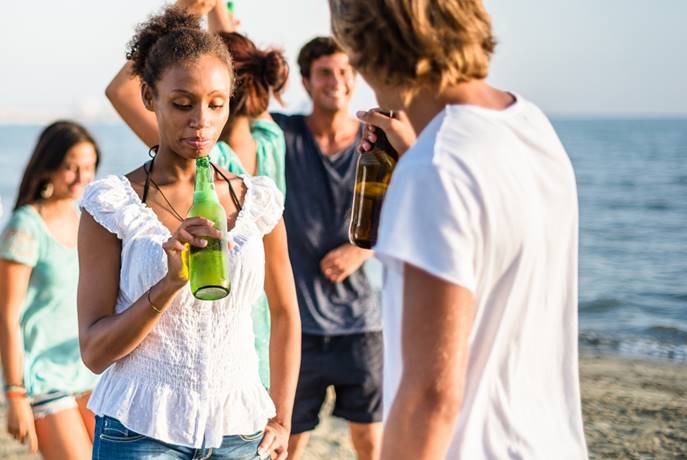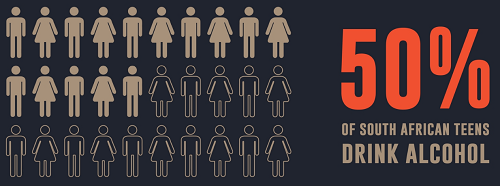
Ingrid Louw, CEO of the Association for Alcohol Responsibility and Education (Aware.org) asks, "How do we disrupt the trend of adolescent alcohol consumption so that our youth are not robbed of a bright future"?
Recent research by Aware.org, an organisation that promotes responsible drinking, reveals that the answer does not appear to be in the form of structured Life-Orientation (LO) programmes.
In 2019 Aware.org piloted an early intervention programme ‘It Starts Today’ that aimed to prevent and interrupt underage drinking amongst school-going youth aged 16 and 17 in the Free State and Mpumalanga provinces.
An increase in alcohol consumption
The pilot phase of the programme tested whether LO programmes were effective tools to educate learners on the harms associated with alcohol use and to change adolescents’ behaviours and perceptions of alcohol use and underage drinking.
While the programme, implemented by Teenactiv1, intended to promote a ‘say no to alcohol’ attitude amongst Grade 10 to 12 learners, findings showed there was in fact an increase in alcohol consumption among the participants over the study period.
The increase was particularly noticeable amongst female participants in Free State schools.
Beer, wine and a shot of hard liquor (such as brandy, whisky, rum, vodka or gin) mixed with a cold-drink were named as the most 'usual drinks', and just over two thirds of all learners reported that they had consumed more than two drinks the last time they had alcohol, which was on average once a week.
Adolescent directed programmes remain extremely important
The results suggest the LO programme needs to be adapted to effectively reduce underage drinking, but results from the research also show that adolescent directed programmes and interventions for alcohol use remain extremely important.
They serve to prevent the development of harmful drinking behaviour during adolescence, and to interrupt pathways into adult alcohol use and dependence.
Notably, learners in the Mpumalanga sample identified teachers informing them about the dangers of drinking alcohol as a key reason for not drinking.
All learners reported that the most common reasons for not drinking are the perception that drinking could increase risk-taking behaviours, knowing that drinking is against the law, parents/guardians informing them about the dangers of drinking alcohol, and a belief that drinking alcohol has a bad influence on one’s future.
Must read: Can teens drink alcohol under parental supervision or is that breaking the law?
‘Most of my friends drink alcohol’
On the other hand, the research also showed that personal interactions and peer influences are key factors that impact an adolescents’ own alcohol use.
The primary reasons reported for drinking alcohol included ‘it helps me relax’, ‘it makes it easier for me to talk to others’ and ‘most of my friends drink alcohol’.
Peer pressure to use alcohol came out far ahead when compared to positive peer encouragement to resist alcohol.
Aware.org says that while these findings do not support the outcomes of the programme, they are not unexpected.
According to local research, experimentation with substances generally commences during adolescence, particularly between the ages of 13 and 17 years, and approximately 50% of school-going youth have used alcohol.
Three primary factors that contribute to adolescent substance use in their communities include parental alcohol use, peer alcohol use and influences, and easy accessibility to alcohol, especially through local taverns.
Aware.org continues to be committed to reducing underage drinking and plans to revisit the LO programme to include a community based participatory action research (CBPAR) approach where stakeholders and researchers work collaboratively to co-develop a targeted programme.
Share with us:
Share your stories with us, and we could publish them. Anonymous contributions are always welcome.




 Publications
Publications
 Partners
Partners












